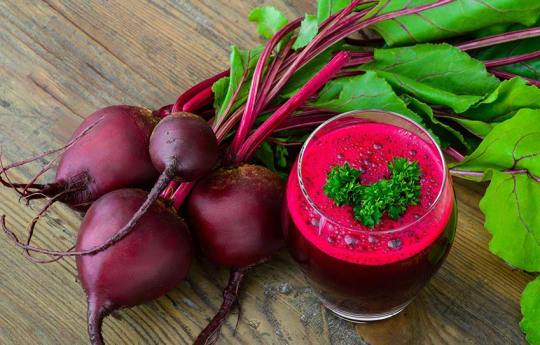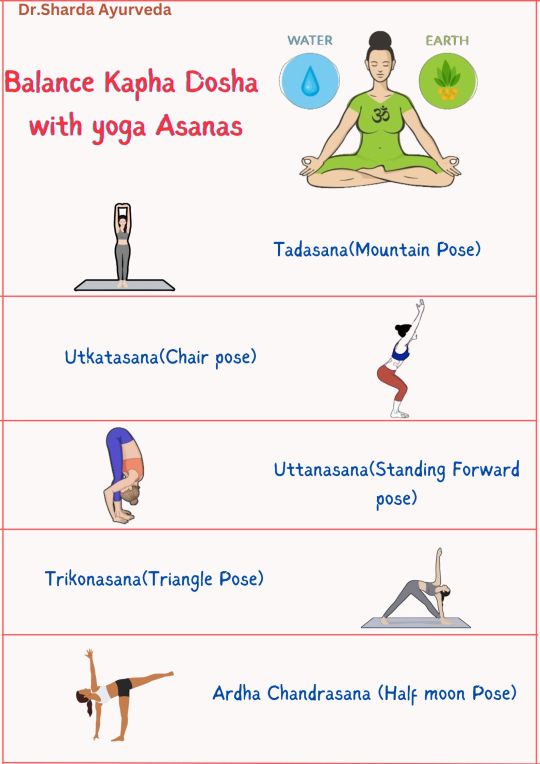#Ayurvedic Health Tips
Explore tagged Tumblr posts
Text
Best Ayurvedic Tips for Boosting Immunity During Winter
Boost your immunity this winter with these Ayurvedic Health Tips! Incorporate seasonal superfoods like turmeric and ginger, enjoy warm herbal teas, and embrace Ayurvedic practices such as oil massages to keep your body warm and resilient. These natural remedies promote overall wellness and help you stay healthy throughout the season. For more in-depth Ayurvedic insights and additional tips, explore our comprehensive blog on winter health care.
0 notes
Text
🐄🥛 Should You Drink Milk? Let’s Separate Fact from Fiction! 🥛🐄
Ever heard claims like "milk contains harmful chemicals," "it disrupts Kapha," or "boiled milk loses its nutrients"? 🤔 Let's clear the confusion!
✨ Did you know? Cow's milk is considered a complete food in Ayurveda. ✅ It’s easy to digest ✅ Supports immunity ✅ Offers numerous health benefits when consumed mindfully
🌿 Curious about more Ayurvedic tips for better health? Explore wellness insights on our Charya Ayurveda today!
💚 Rediscover the goodness of nature.
#Dinacharya#best ayurvedic prodcuts#Ayurveda Daily Routine#chemical free products#ayurvedic brands#buy ayurvedic products online#ritucharya#ayurvedic aahar#diet chart according to ayurveda#ayurvedic health tips#ayurvedic tips
0 notes
Text

Hey friends! Ever wondered what happens in your tummy after a tasty meal? Let's dive into the world of happy tummies! Imagine your stomach as a superhero, and together, we'll explore easy ways to keep it happy. This journey is all about yummy foods and simple tricks for a super-happy belly. By the way, have you considered incorporating Wellhealth Ayurvedic Health Tips into your daily routine? It's a natural way to boost your well-being and keep your tummy smiling!
0 notes
Text
How to Make Homemade Onion Hair Oil for Gorgeous Locks
Creating your own homemade onion hair oil is a cost-effective and natural way to harness the benefits of this powerful ingredient for your hair. In this article, we will guide you through the simple steps of making onion hair oil at home and highlight the advantages of this DIY approach.
Ingredients You'll Need:
Fresh onions (2-3 medium-sized)
Carrier oil (e.g., coconut oil, olive oil, or almond oil)
A small saucepan
A fine strainer or cheesecloth
A clean glass container for storage
Steps to Make Homemade Onion Hair Oil:
Step 1: Prepare the Onions Start by peeling and chopping the fresh onions into small pieces. The finer you chop them, the better the extraction of onion juice will be.
Step 2: Heat the Carrier Oil Choose your preferred carrier oil and pour it into a small saucepan. Heat the oil on low heat until it becomes warm, but not too hot. You should be able to comfortably touch it with your finger. Heating the oil aids in the extraction process.
Step 3: Combine Onion and Oil Add the chopped onions to the warm carrier oil. Allow them to simmer together for about 10-15 minutes. The heat will release the beneficial compounds from the onions into the oil.
Step 4: Cool and Strain Once the oil has cooled down, strain it through a fine strainer or cheesecloth into a clean glass container. This will separate the oil from the onion remnants, giving you a pure onion-infused hair oil.
Step 5: Store Your Homemade Onion Hair Oil Store your homemade onion hair oil in a cool, dark place. A tinted glass container is ideal to protect the oil from light exposure. Proper storage will maintain its potency.
How to Use Homemade Onion Hair Oil:
Apply the oil to your scalp and hair, massaging it gently.
Leave it on for at least an hour or overnight for maximum benefits.
Wash your hair with a mild shampoo and conditioner to remove the oil.
Use it regularly, ideally twice a week, for noticeable results.
Advantages of Homemade Onion Hair Oil:
1. Freshness and Purity: Making onion oil for hair at home ensures its freshness and purity. You have control over the ingredients, and there are no added preservatives or chemicals.
2. Cost-Effective: Homemade onion oil for hair is more cost-effective than purchasing commercial versions. You can create a batch that lasts for weeks with just a few ingredients.
3. Customizable: You can experiment with different carrier oils to create a customized hair oil that suits your hair type and preferences.
4. Eco-Friendly: Creating your own hair oil reduces the need for buying packaged products, contributing to a more eco-friendly lifestyle.
5. Holistic Approach: Homemade onion hair oil allows you to take a holistic approach to hair care by using natural ingredients.
In conclusion, making homemade onion hair oil is a simple and rewarding DIY project that can lead to healthier and more beautiful hair. With the advantages of freshness, cost-effectiveness, customizability, and a holistic approach to hair care, you can enjoy the benefits of this natural remedy while knowing exactly what goes into your hair oil.
0 notes
Text
The Wonder Drink: Fenugreek Water for Health and Wellness

Fenugreek water is particularly beneficial for boosting immunity. It is rich in antioxidants and anti-inflammatory compounds that help strengthen the body's defense system. Regular consumption of fenugreek water can help ward off common infections and promote overall well-being.
For Mor Information Visit Here
#health tips#Fenugreek Water Benefits#Immunity Booster Drink#Drink#Fenugreek for Diabetes#Weight Loss Drink#Digestive Health Drink#Fenugreek for Women#Breast Milk Production#Natural Remedies#Ayurvedic Drink#Fenugreek Seeds Benefits
2 notes
·
View notes
Text
The Humble Beetroot: A Root Vegetable Packed with Powerful Benefits
Beetroot, a vibrant ruby red vegetable with earthy undertones, is more than just a colorful addition to your salad. This root vegetable, also known as red beet or simply beet, boasts an impressive nutritional profile, making it a valuable asset to a healthy food fitness tip. From boosting athletic performance to promoting heart health, the benefits of beetroot are numerous.

A Nutritional Powerhouse:
Beetroot is low in calories and fat, making it a perfect choice for weight management. It's an excellent source of essential vitamins and minerals, including:
Vitamin C: Strengthens the immune system and promotes collagen production for healthy skin.
Potassium: Essential for regulating blood pressure and maintaining healthy muscle function.
Fiber:
Beetroot is low in calories and fat, making it a perfect choice for weight management and potentially beneficial for people with diabetes (is beetroot good for diabetes?). This is due to its high fiber content, which helps regulate blood sugar by slowing down the absorption of carbohydrates. Additionally, some studies suggest that beetroot may improve insulin sensitivity, further aiding in blood sugar control for people with diabetes.
Folate: Crucial for cell growth and development, especially important during pregnancy.
Manganese: Plays a role in metabolism, bone health, and wound healing.
Unique Nitrate Content:
Beetroot is rich in nitrates, which are converted into nitric oxide in the body. Nitric oxide relaxes blood vessels, leading to several health benefits:
Improved Blood Flow: Enhanced blood flow benefits overall cardiovascular health by lowering blood pressure and improving circulation.
Exercise Performance: Nitric oxide improves oxygen delivery to muscles, reducing fatigue and potentially enhancing athletic performance.
Cognitive Function: Increased blood flow to the brain may improve cognitive function, memory, and focus.
Additional Health Benefits:
Beetroot offers a range of other health benefits:
Antioxidant Powerhouse: Beetroot contains betalains, powerful antioxidants that protect cells from damage and may reduce the risk of chronic diseases.
Anti-inflammatory Properties: Beetroot's betalains may also have anti-inflammatory effects, potentially benefiting conditions like arthritis and inflammatory bowel disease.
Detoxification Support: Beetroot may aid detoxification by stimulating bile production and supporting liver function.
How to Enjoy Beetroot:
Beetroot's versatility allows you to incorporate it into your diet in various ways:
Roasted: Roasting brings out the sweetness of beetroot. Enjoy it cubed as a side dish or sliced on salads.
Pickled: Pickled beetroot adds a tangy flavor to sandwiches, burgers, or salads.
Sautéed: Sautéed beetroot pairs well with other vegetables or protein sources.
Juiced: Beetroot juice offers a concentrated dose of nutrients. Blend it with other fruits or vegetables for a refreshing and healthy drink.
In Conclusion:
Beetroot, a delicious and nutritious root vegetable that deserves a place on your plate, is a fantastic healthy food fitness tip. Packed with essential vitamins, minerals, and unique compounds like nitrates, beetroot offers a range of health benefits, from improved blood flow and exercise performance to cognitive function and overall well-being. So next time you're at the grocery store, don't overlook the humble beetroot. Explore its culinary versatility and unlock the power of this vibrant root vegetable.
3 notes
·
View notes
Text

6 notes
·
View notes
Text
Revitalize Your Skin
Revitalize Your Skin: The Art of Ayurvedic Abhyanga Oil Massage"

In the hustle and bustle of our daily lives, it's easy to overlook the importance of self-care and nurturing our skin. But what if I told you there's a centuries-old practice that not only rejuvenates your skin but also promotes overall wellness? Enter Ayurvedic Abhyanga oil massage—an ancient art that has stood the test of time, offering a holistic approach to skincare and well-being.
The Essence of Ayurveda:
Ayurveda, the ancient system of medicine originating in India, places a strong emphasis on maintaining balance within the body, mind, and spirit. Abhyanga, a key component of Ayurvedic self-care, involves the therapeutic application of warm, herb-infused oil to the body. This practice is not just a beauty ritual; it's a profound method to nourish and revitalize your skin while promoting inner harmony.
The Benefits:
Deep Hydration: Ayurvedic oils penetrate deep into the layers of the skin, providing intense hydration. This helps combat dryness, flakiness, and dullness.
Improved Circulation: The rhythmic and intentional massage strokes of Abhyanga stimulate blood flow, promoting better circulation. This, in turn, enhances the delivery of nutrients to skin cells and encourages detoxification.
Stress Reduction: The soothing nature of the massage calms the nervous system, reducing stress and promoting relaxation. As stress is a common culprit for skin issues, this can significantly contribute to a clearer complexion.
Lymphatic Support: Abhyanga aids in lymphatic drainage, helping to flush out toxins and reduce inflammation. This can be particularly beneficial for those dealing with puffiness and skin conditions related to inflammation.
How to Perform Ayurvedic Abhyanga Oil Massage:
Choose the Right Oil:
Sesame oil is a popular choice for its warming properties.
For a cooling effect, opt for coconut or sunflower oil.
Infuse the oil with herbs like lavender, chamomile, or neem for added benefits.
Prepare Your Space:
Find a quiet and comfortable space where you won't be disturbed.
Warm the room slightly to enhance the soothing experience.
Warm the Oil:
Place the oil in a warm water bath to achieve a comfortable temperature.
Begin with a Self-Prayer:
Take a moment to set an intention for your self-care practice.
Start at the Extremities:
Begin massaging your limbs, moving towards the heart in gentle, circular motions.
Focus on the Joints:
Pay extra attention to joints, such as the knees, elbows, and ankles, using circular motions.
Massage the Abdomen:
Use clockwise motions over the abdomen to support digestion.
Allow the Oil to Absorb:
Leave the oil on your skin for at least 15–20 minutes to allow absorption.
Follow with a Warm Shower:
Rinse off the excess oil with a warm shower, using a mild soap if needed.
Conclusion:
Incorporating Ayurvedic Abhyanga oil massage into your self-care routine isn't just about achieving radiant skin; it's a commitment to your overall well-being. Embrace this ancient practice as a ritual of self-love, and let the nourishing benefits ripple through your body, mind, and spirit. Your skin will thank you, and so will your inner balance.
#ayurveda#ayurvedic medicine#ayurvedic massage#restoration wellness#wellness#healthy lifestyle#health and wellness#ayurvedicmedicine#aromatherapy#skin care#skin care tips
2 notes
·
View notes
Text
पुनर्नवादि गुग्गुल: फायदे, नुकसान और उपयोग

आयुर्वेद में अनेक जड़ी-बूटियों का उपयोग विभिन्न बीमारियों के इलाज के लिए किया जाता है। पुनर्नवादि गुग्गुल उन्हीं में से एक शक्तिशाली औषधि है। यह गुग्गुल (गुग्गलु) के साथ अन्य जड़ी-बूटियों का मिश्रण है, जो शरीर को डिटॉक्स करने, सूजन को कम करने और कई बीमारियों से राहत दिलाने में मदद करता है। यह मुख्य रूप से वात और कफ दोष को संतुलित करने के लिए उपयोग किया जाता है। आइए जानते हैं इसके फायदे, नुकसान और उपयोग के बारे में।
पुनर्नवादि गुग्गुल के फायदे
पुनर्नवादि गुग्गुल के फायदे अनेक हैं। किडनी की कार्यक्षमता बढ़ाने से लेकर त्वचा के स्वास्थ्य को बढ़ावा देने तक, पुनर्नवादि गुग्गुल के फायदे व्यापक हैं। आइए पुनर्नवादि गुग्गुल के फायदे के बारे में विस्तार से पढ़ें:
1. किडनी की सेहत को बेहतर बनाए पुनर्नवादि गुग्गुल किडनी को स्वस्थ रखने में सहायक है। इसमें पुनर्नवा, त्रिफला और गुग्गुल जैसी जड़ी-बूटियां होती हैं, जो मूत्रवर्धक (Diuretic) गुणों से भरपूर होती हैं। यह शरीर से विषाक्त पदार्थों को बाहर निकालने में मदद करता है और किडनी की कार्यक्षमता को सुधारता है।
2. जोड़ों के दर्द और गठिया में राहत यह औषधि सूजनरोधी (Anti-inflammatory) गुणों से भरपूर होती है, जो गठिया, संधिशोथ (Arthritis) और जोड़ों के दर्द में राहत देती है। गुग्गुल शरीर में जमा हुए टॉक्सिन्स को बाहर निकालता है, जिससे जोड़ों में होने वाली जकड़न और सूजन कम होती है।
3. वजन घटाने में सहायक जो लोग मोटापे से परेशान हैं, उनके लिए पुनर्नवादि गुग्गुल उपयोगी हो सकता है। यह मेटाबोलिज्म को तेज करता है और शरीर में जमा अतिरिक्त वसा को कम करने में मदद करता है। यह शरीर को डिटॉक्स करके अतिरिक्त चर्बी को घटाने में सहायक होता है।
4. यूरिक एसिड और गाउट में लाभकारी इस औषधि में पुनर्नवा और त्रिफला जैसे तत्व होते हैं, जो शरीर में यूरिक एसिड के स्तर को नियंत्रित करने में मदद करते हैं। यह गाउट (Gout) और जोड़ों में यूरिक एसिड क्रिस्टल के जमाव को रोकने में मदद करता है।
5. त्वचा रोगों में फायदेमंद पुनर्नवादि गुग्गुल रक्त को शुद्ध करने वाली औषधि मानी जाती है। यह मुंहासे, फोड़े-फुंसी, एक्जिमा और सोरायसिस जैसी समस्याओं में उपयोगी होता है। यह शरीर से टॉक्सिन्स निकालकर त्वचा को साफ और चमकदार बनाता है।
6. लिवर को मजबूत बनाए लिवर हमारे शरीर के पाचन और डिटॉक्सिफिकेशन में महत्वपूर्ण भूमिका निभाता है। पुनर्नवादि गुग्गुल लिवर की कार्यक्षमता को बढ़ाता है और फैटी लिवर जैसी समस्याओं को दूर करने में सहायक होता है।
पुनर्नवादि गुग्गुल के नुकसान
हालाँकि, पुनर्नवादि गुग्गुल के फायदे सर्वविदित हैं, लेकिन पुनर्नवादि गुग्गुल के नुकसान समझना भी महत्वपूर्ण है। आइए पुनर्नवादि गुग्गुल के नुकसान के बारे में पढ़ें:
पाचन संबंधी समस्या: अधिक मात्रा में लेने से पेट दर्द, गैस और एसिडिटी हो सकती है।
लो ब्लड प्रेशर: यह औषधि रक्तचाप को नियंत्रित करती है, लेकिन लो ब्लड प्रेशर वाले लोगों को डॉक्टर की सलाह लेनी चाहिए।
गर्भवती महिलाओं के लिए नहीं: गर्भवती और स्तनपान कराने वाली महिलाओं को इसके सेवन से बचना चाहिए।
एलर्जी की संभावना: कुछ लोगों को इसमें मौजूद जड़ी-बूटियों से एलर्जी हो सकती है, जिससे त्वचा पर खुजली या रैशेज हो सकते हैं।
पुनर्नवादि गुग्गुल का सेवन कैसे करें?
इसका सेवन आमतौर पर डॉक्टर की सलाह के अनुसार करना चाहिए।
सामान्य तौर पर, दिन में दो बार 1-2 गोलियां गुनगुने पानी या दूध के साथ ली जा सकती हैं।
इसे खाली पेट या भोजन के बाद लिया जा सकता है, लेकिन बेहतर परिणाम के लिए डॉक्टर से परामर्श अवश्य लें।
निष्कर्ष
पुनर्नवादि गुग्गुल एक प्रभावी आयुर्वेदिक औषधि है, जो किडनी, लिवर, त्वचा और जोड़ों की समस्याओं में लाभकारी होती है। यह शरीर को डिटॉक्स करने, सूजन कम करने और वजन घटाने में मदद करता है। हालांकि, इसका सेवन सही मात्रा में और चिकित्सकीय परामर्श के अनुसार ही करें ताकि कोई दुष्प्रभाव न हो।
अगर आप इसे अपने स्वास्थ्य लाभ के लिए लेना चाहते हैं, तो पहले किसी आयुर्वेदिक चिकित्सक से परामर्श जरूर लें।
#Trending#For you#tumblr trends#Punarnavadi guggulu#पुनर्नवादि गुग्गुल#पुनर्नवादि गुग्गुल का सेवन#health#natural#ayurveda#health and wellness#healthylifestyle#ayurvedic remedy#ayurvedic#mens health#natural herbs#wellness#health tips#healthy living
0 notes
Text
Effective Health Tips During Winter Season for Staying Well
Looking for effective health tips during winter season? Stay warm and well by layering clothes, sipping on warm herbal teas, staying active indoors, and boosting immunity with nutritious seasonal foods. Protect your skin from dryness with moisturizers and keep hydrated for overall wellness. Following these simple steps can help you stay fit, energized, and healthy throughout the chilly months.
0 notes
Text

Ayurvedic Recommendations for Early Winter Season: The climate of the world is highly diverse, influenced not only by the Earth’s distance from the Sun but also by various regional. Read More….
#ayurveda#ayurvedic#healthy#login#health tips#colours of india#herbs#health#health-ayurveda#patanjali ayurved
0 notes
Text

#Ayurvedic festive recipes#Healthy festive season#Ayurvedic health tips#Ayurvedic sweet treats#Festive season wellness#Festive Ayurvedic dishes#Ayurveda and celebrations#Natural sweeteners
0 notes
Text
Takradhara is a unique Ayurvedic therapy with a rich history dating back centuries in India. Derived from two Sanskrit words, “Takra” which means medicated buttermilk, and “Dhara” which means flow. Takradhara involves the continuous pouring of the medicated buttermilk on the individual’s forehead. This therapeutic practice is deeply rooted in Ayurveda, the ancient Indian system of medicine, which emphasizes the balance of bodily energies and holistic well-being.
#ahmedabad#setu nutricare clinic#setu nutricare#healthy lifestyle#health#health tips#ayurveda#ayurvedic therapy#ayurvedic treatment#lifestyle
0 notes
Text
#ayurveda#ayurveda treatment#ayurvedic#health and safety#rehabilitation#healthcare#ayurvedicmedicine#ayurvedictreatment#ayurvedalifestyle#health#skincare#face#skincare tips#acne treatment#skin health#healthy skin#beauty products#skincaretreatment
0 notes
Text
Insomnia: Ayurvedic Treatments
Insomnia is a sleep disorder and is characterized by a constant difficulty in sleeping, or restorative sleep, even if there is enough opportunity to relax. This condition is usually prolonged and lasts for a long time. Or better sleep periods with insomnia periods can occur alternately. Insomnia can be considered a serious health problem. This is because insomnia has a significant negative effect on a person’s well-being. Due to insomnia, their daytime performance and overall quality of life are affected. This blog has a variety of details about insomnia and lets us know about its symptoms, as well as its causes and and the remedies of Ayurveda.

Types of Insomnia:
Insomnia is divided into 5 types. Let’s know about them in detail one by one.
1. Severe insomnia: severe insomnia is slightly different. Because this type of insomnia is short-lived. The reason for this is frequent stress, the effect of some life events, or a sudden change in the sleep environment. It is a short-term sleep disorder that usually lasts from a few nights to a few weeks.
2. Chronic Insomnia: As the name suggests, chronic insomnia is a condition that lasts for a long period of time. That means at least three nights a week for three months or more.
3. Onset insomnia: Onset insomnia refers to difficulty falling asleep at the beginning of the night. That is, in the beginning of going to bed, you will suffer from sleeplessness for some time. After a long time, sleep takes over, but not enough sleep can lead to other health problems.
4. Maintenance insomnia: Maintenance insomnia is an insomnia problem that involves frequent awakenings during the night after going to bed again and again. Because of this frequent awakening during sleep behavior, one cannot find peace or satisfaction in sleep.
5. Comorbid Insomnia: This insomnia occurs due to other medical or psychiatric conditions such as depression, anxiety, or chronic pain.
Symptoms:
While not sleeping well is the first symptom of insomnia, there are other symptoms as well. Let’s know about them. Symptoms of insomnia may include:
1. Difficulty falling asleep: Everyone falls asleep as soon as they lie down, usually when they are tired. But those who have insomnia problems do not fall asleep easily, even though they are tired. They take a long time to fall asleep. This is the very first symptom of insomnia.
2. Waking up frequently: People with insomnia can’t sleep comfortably even at night. It is common for them to wake up several times a night. Thus, once you wake up during sleep, it becomes difficult to go back to sleep.
3. Non-restorative sleep: As people with insomnia do not get a perfect night’s sleep, they do not have any kind of refreshed feeling when they wake up in the morning. That is, they feel restless due to lack of sleep.
4. Fatigue during the day: Any person has energy only after a good night’s sleep. The energy that is present in full sleep is not available from incomplete sleep. People with insomnia may feel tired or irritable during the day due to incomplete sleep.
5. Impaired concentration and memory: Sleep is so important for a human being that there is a direct relationship between sleep and concentration. However, only good sleep can increase a person’s concentration. Here the concentration or memory is impaired because the sleep is not gettingg properly.
6. Mood Disturbances: Incomplete sleep leads to lack of peace of mind. This causes mood swings such as mental irritability, anxiety, or depression.
Reasons:
Insomnia can be caused by various reasons. And those reasons may differ from person to person. What is visible to one person may not be visible to another. However, here we list some common reasons for you. Some of such common reasons are:
1. Stress and anxiety: Some conditions, such as daily running, mental stress caused by it, such as worries or excessive thoughts, sometimes anxiety about something—all these can interfere with sleeping. Due to this reason, many people are suffering from the health problem of insomnia.
2. Poor sleeping habits: Some people sleep in a different position, which causes them to wake up suddenly. For example, some people have the habit of sleeping on their sides. For such people, there is a possibility of waking up suddenly due to shortness of breath. Once you wake up, it becomes a bit difficult to go back to sleep. Others go to bed at different times of the day without having a specific bedtime. So they suffers from insomnia. Drinking caffeinated coffee and tea before going to bed can also prevent sleep. Others may experience sleep disturbances due to consumption of alcohol and use of electronic devices before bed.
3. Medical conditions: Some health problems can also cause insomnia. Some medical conditions, such as chronic pain, asthma, heartburn, or restless leg syndrome, can interfere with sleep.
4. Mental Health Disorders: Good sleep is possible only when mental health is balanced. Conditions such as depression, anxiety, and post-traumatic stress disorder (PTSD) are linked to insomnia.
5. Medications: Antidepressant medications, stimulants, and certain medications that affect hormones can disrupt sleep.
6. Environmental Factors: Sometimes the noise in sleeping or the atmosphere of unrest in the house or unpleasant arguments before going to bed can also disturb the sleep.
Ayurvedic treatments:
Ayurvedic treatment for insomnia problems without side effects can really help you to get rid of your insomnia problem. We have found some effective treatments at Vedicmed. Here is information on some such Ayurvedic treatments:
1. Counseling: Counseling and stress management play an important role in managing insomnia. We have the experienced consultants to counsel and give appropriate sensitivity to your thoughts, feelings, and concerns. And helps you explore your sleep habits. This is beneficial in reducing your stress and improving sleep quality.
2. Oral Therapy: Our Ayurvedic doctors can prescribe low-dose formulations and dietary supplements to support your sleep quality, reduce stress, and promote relaxation. This step can make a big difference in your sleep.
3. Shirodhara: Shirodhara is an Ayurvedic treatment. In this treatment, warm oil/ Kashaya/ medicated sections is continuously poured slowly on the forehead. This type of warm oil flow can help calm your mind, reduce stress, and induce relaxation. In this way, it supports your good sleep.
4. Nasya (Nasal Administration): Nasya is a treatment given by passing medicated oils through the nostrils. Breathing becomes easier with this treatment. This treatment also helps to calm the nervous system. This treatment has the power to control body defects. And this therapy also helps to reduce stress. Overall, Nasya contributes to your better sleep in all these ways.
5. Shirobasti: Shirobasti is an Ayurvedic treatment in which a cap is placed on the head and oil is poured over it. This treatment relieves the pressure in the head to some extent. And it helps promote mental relaxation and mental balance. It can help you sleep better. 6. Shiro Lepa (Head Pack): Shiro Lepa is a paste of medicinal herbs applied to the head. This treatment provides comfort to the head and helps reduce stress and promote relaxation. Thereby, it provides relief from insomnia
#insomnia#ayurvedic herbal medicine#health and wellness#healthcare#health tips#panchkarma#vedicmed#ayurvedic products#panchakarma
0 notes
Text
youtube
#Charaka Samhita#Ayurveda#holistic health#wellness tips#physical therapy#alternative medicine#ancient wisdom#traditional medicine#Ayurvedic practices#health and wellness#natural healing#spinal health#spine care#mind-body connection#back pain relief#posture correction#body alignment#spine alignment#yoga for spine#self-care#Youtube
1 note
·
View note